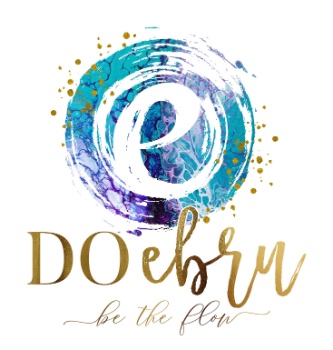Ebru art is listed as an intangible cultural heritage of humanity by UNESCO.
Ebru is the traditional Turkish art of creating colourful patterns by sprinkling and brushing colour pigments onto a pan of oily water and then transferring the patterns to paper. Known as marbling, the designs and effects include flowers, foliage, ornamentation, latticework, mosques and moons, and are used for decoration in the traditional art of bookbinding. The practitioner uses natural methods to extract colours from natural pigments, which are then mixed with a few drops of ox-gall, a kind of natural acid, before sprinkling and brushing the colours onto a preparation of condensed liquid, where they float and form swirling patterns. Ebru artists, apprentices and practitioners consider their art to be an integral part of their traditional culture, identity and lifestyle. Their knowledge and skills, as well as the philosophy behind this art, are transmitted orally and through informal practical training within master-apprentice relationships. Achieving basic skills in Ebru takes at least two years. The tradition is practised without barrier of age, gender or ethnicity, and plays a significant role in the empowerment of women and the improvement of community relationships. The collective art of Ebru encourages dialogue through friendly conversation, reinforces social ties and strengthens relations between individuals and communities.
Decision 9.COM 10.44
The Committee (…) decides that [this element] satisfies the criteria for inscription on the Representative List of the Intangible Cultural Heritage of Humanity, as follows:
R.1: Ebru patterns and designs are transmitted from masters to students, promoting the participation of women and youth in cultural life and thereby strengthening consciousness about identity and cultural heritage;
R.2: The inscription of the element on the Representative List could encourage the renewal of its artistic language and the development of a network of creative communities; it could also promote the exchange of marbling experiences, thereby contributing to dialogue among different communities and artists;
R.3: Both the State Party and the communities concerned are committed to safeguarding the Turkish art of marbling through a series of measures that varies from the creation of a research and apprenticeship centre to a learning project for children, from fostering documentation to its promotion through symposiums and museological work;
R.4: The nomination process has been driven by the interest and demand expressed by the community of practitioners that has expressed through several working groups its free, prior and informed consent to the nomination;
R.5: The element was included in 2010 in the Intangible Cultural Heritage National Inventory of Turkey carried out under the authority of the Ministry of Culture and Tourism and updated in 2013.
Information is from:
http://www.unesco.org/culture/ich/en/RL/00644


0 Comments